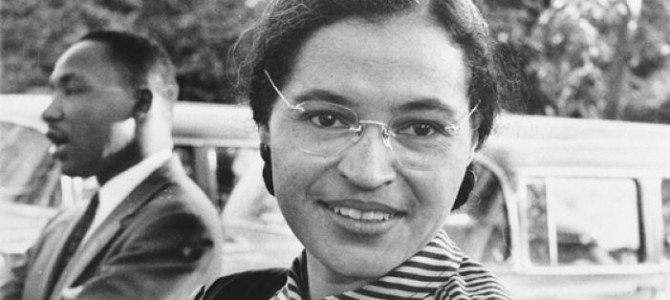Abortion activists are trying to say that unborn babies aren’t really babies at all, but “products of conception.” Those livers, muscles, and brains that Planned Parenthood employees were recently caught on tape admitting to harvesting for research aren’t coming out of babies; no, they’re just “products of conception,” according to a writer for The New Republic.
As Denise McAllister pointed out today for The Federalist, every individual who has ever lived is a product of conception. No matter how much the abortion industry tries to play word games, those organs are human organs, and the products of conception they chose to abort are all human lives.
Here are seven notable “products of conception” who changed history for the better:
1. Harriet Tubman

Tubman escaped from slavery when she was 29 years old but returned many times to help her family members and friends escape safely to the North. Throughout her lifetime she freed hundreds of slaves, regularly risking her life and freedom to do so. She served troops in the Civil War as a cook, nurse, scout, and spy. She was the first woman to guide armed troops during the war in the Combahee River Raid, which resulted in the freedom of 700 slaves. Without this “product of conception,” the Underground Railroad that shepherded slaves to freedom might never have existed.
2. Marie Curie

Curie was the first woman to receive the Nobel Prize due to her groundbreaking work in radio activity. Her discoveries led to atomic physics becoming a field of study, and she coined the term “radioactivity.” She also invented the X-Ray machine, and pushed for portable ones to be used in the battlefield to help soldiers and army doctors during WWI.
3. Susan B. Anthony

Anthony fought on the forefront for women’s right to vote. Her Quaker upbringing helped her to recognize that women and men were equal, and that they deserved an equal opportunity to influence legislation via the ballot box. She also fought to abolish slavery and to establish property rights for women. Her work laid the foundation for the ratification of the 19th Amendment, which gave women the right to vote.
4. Florence Nightingale

Nightingale changed the perception of nursing forever. After eschewing marriage in order to pursue nursing, her accomplishments in the field made nursing an honorable profession for all women. During the Crimean War, she led a team of women to clean up British base camps, which reduced the death count by two-thirds. Her work inspired worldwide health reform, and she started a training school for nurses in 1860.
5. Harriet Beecher Stowe

Stowe’s famous book, Uncle Tom’s Cabin, captured in vivid terms the evils of slavery. The publishing of her book marked a turning point for the broader acceptance of the abolitionist movement. Though it was well received in the North, Tubman’s work stirred up great controversy in the South. After the Civil War began, Stowe travelled to Washington, D.C., to visit Abraham Lincoln, who reportedly said to her: “So you are the little woman who wrote the book that started this great war.”
6. Rosa Parks

When Parks refused to give up her bus seat to a white passenger in Montgomery, Alabama, it kicked off a city-wide boycott of the bus system. The city had no choice but to reverse the policy and allow all passengers equal access to bus seating. The bus boycott had a domino effect during the Civil Rights movement, helping to knock down various forms of racial segregation throughout the South.
7. Sappho

Referred to by Plato as the “tenth muse,” Sappho lived approximately between 610-570 B.C. and is recognized as one of the first female poets. Though many of her writings were lost, the fragments that remain are often quoted throughout ancient literature. Her work was able to survive history by reputation among the other great minds of her time, and her work continues to influence scholarly thought today.









